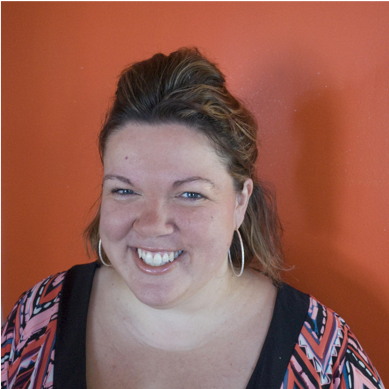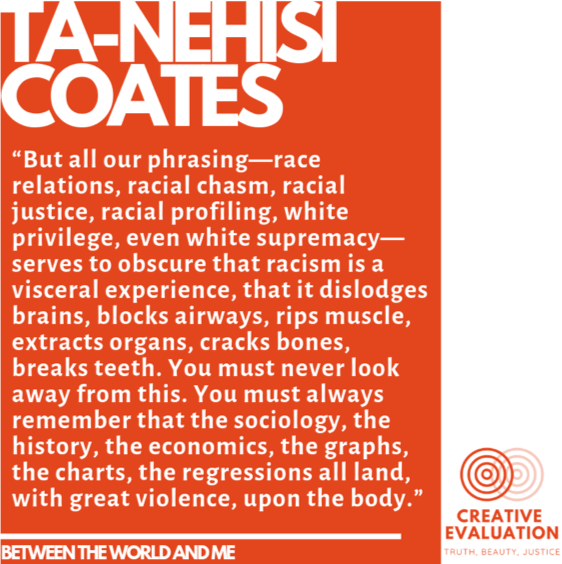
Hi! My name is Nora Murphy Johnson, a Creative Evaluator and co-founder of TerraLuna Collaborative and the Developmental Evaluation Institute.
Our blog posts this week are written by Minnesota evaluators working in justice and equity spaces, focus on words–words to retire, discard, or include. I am writing about words that make me cringe because the “cringe” feeling is a message from my body to my brain. “STOP! Reflect on what you just said.”
Lesson Learned: Some words should make me cringe. Growing up white in the United States, I had the privilege of experiencing the English language as neutral. Many uncomfortable and regrettable experiences have taught me that language is anything but neutral. Language shapes the way I see, think about, talk about, and experience our world. When I don’t interrogate the roots and multiple meanings of words, I risk being complicit in marginalization, exclusion, and oppression
Lessons Learned: I should cringe when words make me blind. I grew up in a time of color blindness. If we can’t see race then we can’t be racist, right? Wrong. Instead, it made me blind to racism and oppression. As I learned to see, I found that I was without words to talk about what I was seeing.
Rad Resources: Read more about the harmful effects of colorblindness in the Atlantic, Teaching Tolerance, and Everyday Feminism.
Lesson Learned: I should cringe when words divide. I grew up in a time and place of male and female, gay or straight, social justice or environmental justice. These binaries classify the human experience into two distinct, opposite, and disconnected experiences. Because I only had words that described binaries, I learned to see binaries in strict black and white, not spectrums that traverse the rich, accepting, empowering, and glorious gray. Artificial binaries should make me cringe.
Rad Resource: Charmagne Campbell-Patton and Michael Quinn Patton helped me see, through their Blue Marble evaluation work, the difference between using the word “world” (a whole term) and international (a term that refers to a world divided, in large part, by colonizers and settlers).
Lesson Learned: I should cringe when language separates me from my body. Some words serve to intellectualize concepts, experiencing them in our heads instead of our body.
Rad Resources: Books including “Between the World and Me” by Ta-NeHisi Coats and “My Grandmother’s Hands” by Resmaa Menakem describe why we need to engage our bodies in justice and equity work.
Lesson Learned: I should cringe when my language gives me power over another. At the recent Ma te Rae (Maori Evaluation Association) conference, an elder cautioned evaluators against tidying-up Maori culture and experiences for Western audiences. In other words, don’t privilege white Western ways of knowing, thinking, and communicating over ours.
Rad Resource: You can access all of the presentations from the conference on their facebook page.
What words make you cringe and why?
The American Evaluation Association is celebrating A Look at Language Week where a group of Minnesota-based evaluators working in justice and equity spaces contribute articles reflecting on the words we use. Do you have questions, concerns, kudos, or content to extend this aea365 contribution? Please add them in the comments section for this post on the aea365 webpage so that we may enrich our community of practice. Would you like to submit an aea365 Tip? Please send a note of interest to aea365@eval.org. aea365 is sponsored by the American Evaluation Association and provides a Tip-a-Day by and for evaluators.

Nora, thank you for this post! I’m an editor in this field. I come across “global south” quite a lot but have mixed feelings about the term. I haven’t seen many resources objecting to its use, but I’d like to get your take.